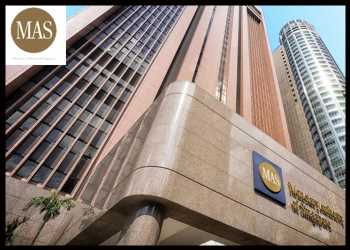Singapore’s central bank tightened its monetary policy stance for the fourth time this year after core inflation moved closer to a 14-year high.
The Monetary Authority of Singapore on Friday decided to re-centre the mid-point of the S$NEER policy band up to its prevailing level, but the slope and width of the band were left unchanged.
“This policy shift, building on past tightening moves, will further reduce imported inflation and help curb domestic cost pressures,” the bank said.
Further, the bank said the current stance will help dampen inflation in the near-term and ensure medium-term price stability.
The MAS holds two monetary policy meetings a year, in April and October. However, in this year, in addition to the tightening at the scheduled meeting in April, the bank held an out-of-cycle move in January and July.
The MAS applies the exchange rate against a basket of currencies within an undisclosed band as its monetary policy tool.
The economy is forecast to grow at a slower pace in tandem with weakening global demand.
At the same time, core inflation is set to stay elevated over the next few quarters amid high imported prices and the tight labor market conditions, supporting wage growth.
For 2022 as a whole, MAS core inflation is projected to average around 4 percent and overall inflation about 6 percent. Core inflation is forecast to stay around 5 percent in the rest of this year.
In 2023, taking into account all factors including the GST increase, MAS core inflation should come in at 3.5-4.5 percent on average over the year, and overall inflation at 5.5-6.5 percent, the bank said.
Data released by the Ministry of Industry and Trade showed that the city-state economy expanded 4.4 percent on a yearly basis in the third quarter, slightly slower than the 4.5 percent growth in the second quarter.
Quarter-on-quarter, GDP gained 1.5 percent, a turnaround from the 0.2 percent fall in the second quarter. The central bank forecast the economy to grow in the range of 3-4 percent this year.
Despite the latest’s strong GDP report, economic growth is likely to slow down in the fourth quarter of 2022 with signs pointing to even faster inflation coupled with global trade softening on recession fears, ING economist Nicholas Mapa said.
Given the outlook for inflation, the MAS will at least need to retain its hawkish tone until price pressures finally show signs of moderating, the economist noted.
Source: Read Full Article
-
$6.4 trillion hole: IMF, World Bank warn of global recession
-
Cheap wine and a cover charge: What a student on $32,000 spends in a week
-
U.S. Consumer Sentiment Index For February Unexpectedly Upwardly Revised
-
Novartis Lifts FY23 View As Q2 Results Top Market, Initiates $15 Bln Buyback; Stock Up
-
The Fed Does Not Care About You

